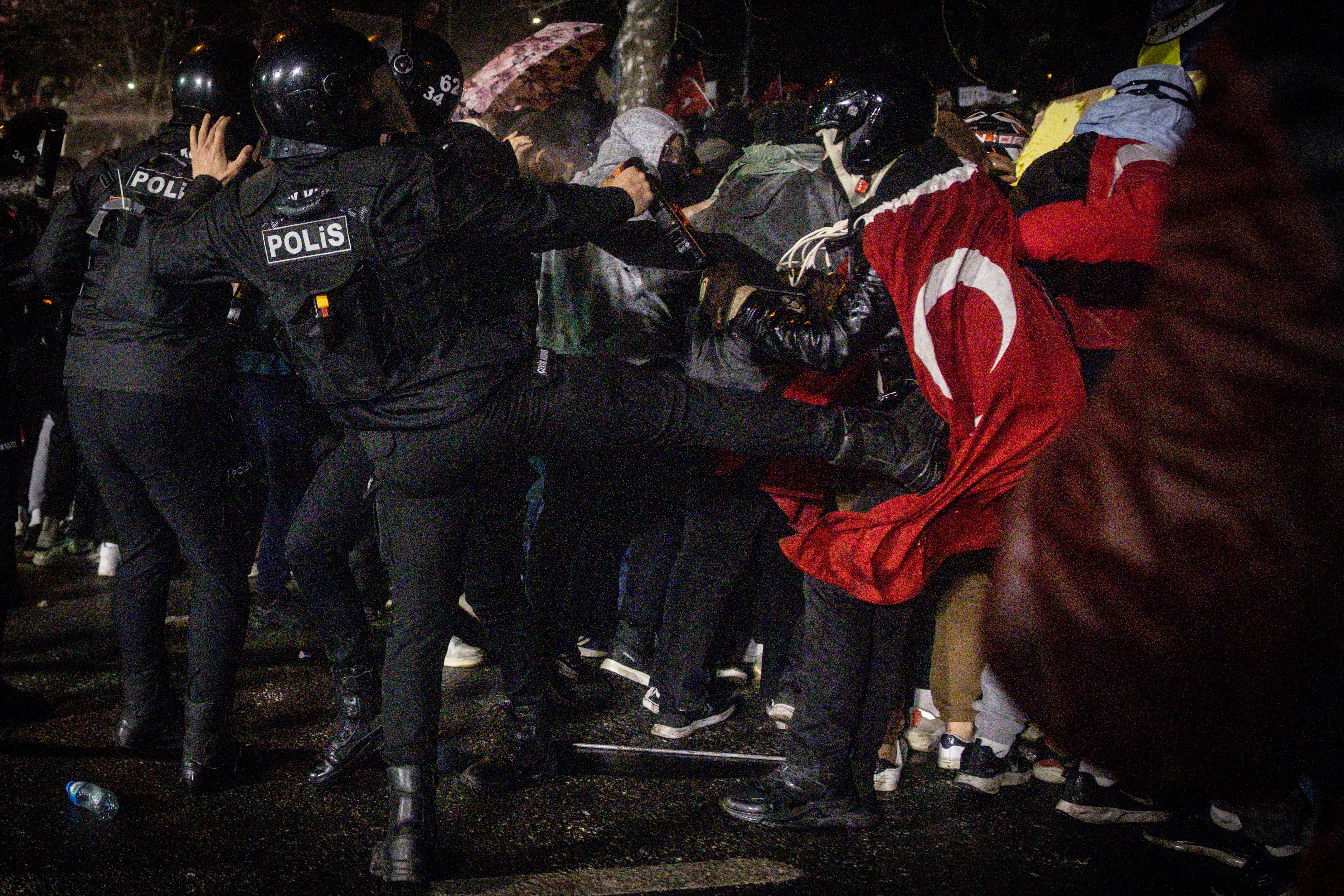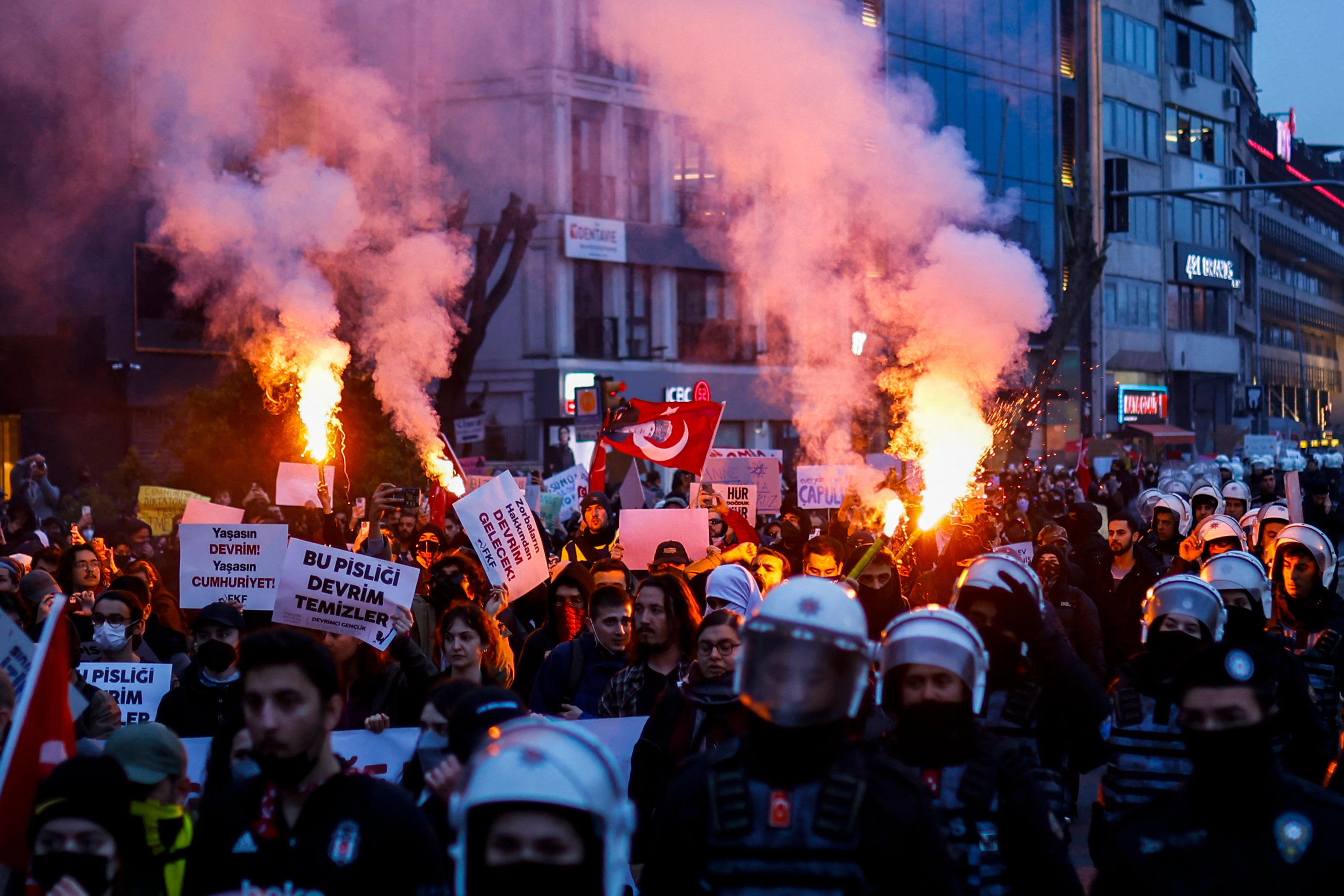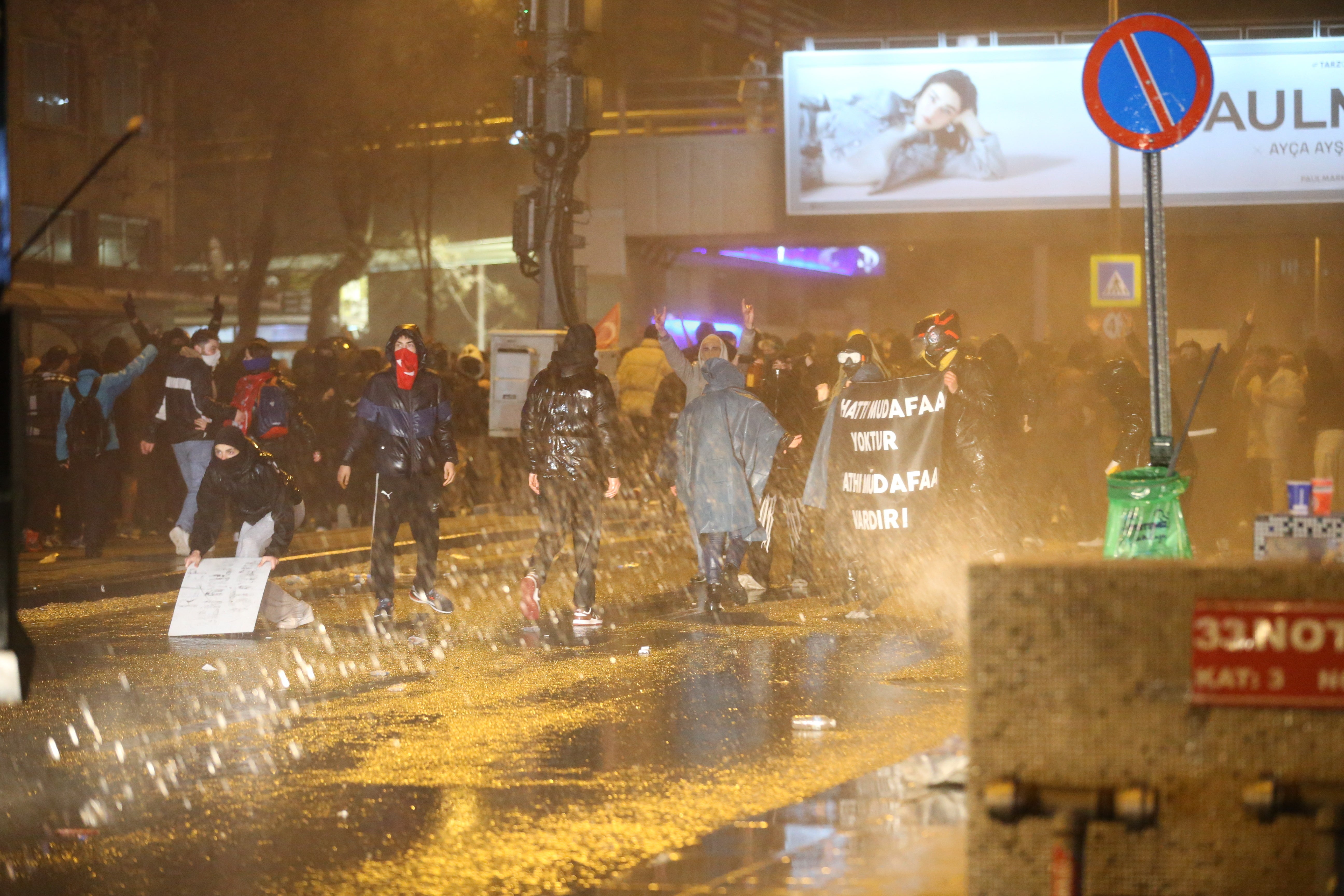As thousands rally in the streets of Istanbul in mass demonstrations against the government, Turkish state media is accused of turning the other way and concealing the reality of the protests from the population.
Turkey has been rocked by seven days of widespread demonstrations against president Recep Rayyip Erdogan, following the arrest of his political rival and Istanbul mayor Ekrem Imamoglu. Tens of thousands have faced rubber bullets and tear gas from Turkish authorities, who have arrested around 1,100 people.
Pro-government cable channel NTV, according to the Guardian, has instead focused on finance minister Megmet Şimşek’s efforts to stabilise the economy. State television, meanwhile, has shown Erdogan speaking of his government’s achievements following an iftar dinner. No footage of the protests or interviews with the demonstrators were broadcast by either channel, opponents say.
Turkey’s broadcasting watchdog RTUK on Saturday threatened to revoke the license of stations airing live coverage of the protests for “biased” coverage - at which point some channels cut away from coverage of the clashes. But a few independent and opposition stations have had almost non-stop coverage.
“More than 90 per cent of the media in Turkey is directly or indirectly controlled by the palace,” Bülent Mumay, a journalist who was given a suspended sentence for publishing information in defiance of a government order in 2023, told The Independent.
“The remaining independent media face legal and financial pressure from the state,” Mr Mumay, who works for German outlet Deutsche Welle, added. “One of the reasons why citizens take to the streets is that they cannot see their problems in the media. They participate in the Imamoğlu protests partly to show their own problems and to express their rebellion.”

Press freedom has not deteriorated in Turkey, Mr Mumay said, because “we do not have press freedom to deteriorate”.
Calling for a boycott of the TV stations and businesses failing to cover the protests, Ozgur Ozel, the chairman of Mr Imamoglu’s Republican People's Party (CHP), said the party is “taking note of every television channel that ignores this moment”.
He accused the advertisers on the channels of “serving (Erdogan’s) palace” while catering to opposition voters. "This is not just about not watching their channels - whoever buys their products is complicit," Mr Ozel said.
Erol Onderoglu, the Turkey correspondent for Reporters Without Borders (RSF), says the journalist community in Turkey is “extremely concerned” about the “very serious shift to a mindset which is trying to get rid of critical media, and journalists reporting properly about political corruptions, clientelism, wrongdoings”.

“We are pursuing our effort to defend the remaining 15 per cent of remaining independent media in Turkey,” he added. “Eighty five per cent is already controlled by the government, by ideological affiliation, or by financial interest.”
People should “not be surprised by this media polarisation and this toxic environment”, Mr Onderoglu said. After Erdogan has taken control of much of corporate media ownership over the past two decades, media which is critical of the government has tried to become the “mainstream media”.
“We have seen the main damage made in the media sector, to liquidate what we all call editorial independence. Political instruction to courts, political instruction to journalism circles, have deteriorated all kinds of justice in society.”

And it is not just Turkish television that is affected. The Turkish government has issued court orders to social media site X to shut down the accounts of more than 700 journalists, media outlets and activists - a move X has said it is fighting in court.
The Media and Law Studies Association, a civil society group, said 11 journalists who were detained for covering banned protests in Istanbul have been taken to the city's Caglayan Courthouse to answer charges of violating the law on meetings and demonstrations.
The journalists were among more than 200 people prosecutors have recommended for imprisonment pending trial, including left-wing activists rounded up at their homes in raids early Monday. By late Tuesday, 172 people, including seven journalists, had been jailed ahead of trial.
Interior Minister Ali Yerlikaya said early Tuesday that police had detained 43 "provocateurs" over what he said were "vile insults" hurled at Erdogan and his family at protests. Later he posted that 1,418 people had been detained since Wednesday last week, and 979 suspects were currently in custody.
"No concessions will be made to those who attempt to terrorize the streets," he wrote on X.
Zelenskyy says Ukraine ready to observe ceasefire against energy targets following US-brokered deal
‘Erdogan wants to be Putin’: Anger in Istanbul as president cracks down on protests
Why are thousands of people protesting in Turkey after Istanbul mayor’s arrest?
Ukraine war latest: Putin makes demands for Black Sea ceasefire despite drone assault
The five words from a nurse that may have saved Pope Francis’s life
Is it safe to travel to Turkey during the Istanbul protests?







